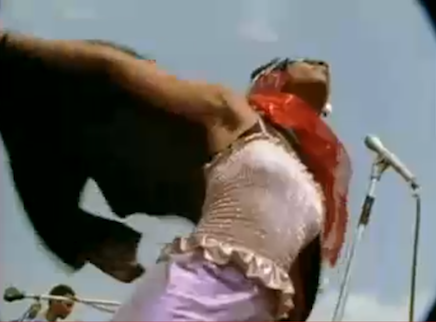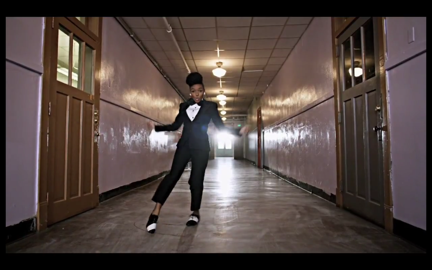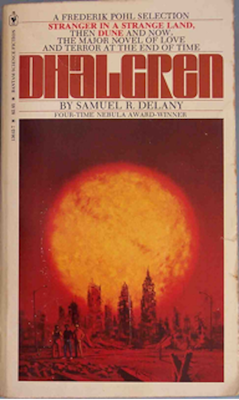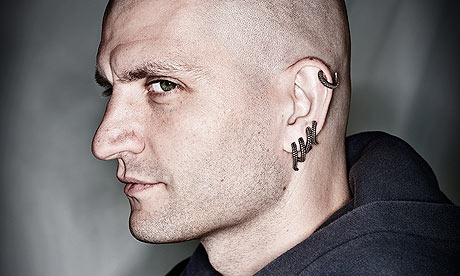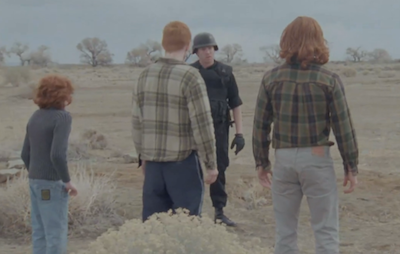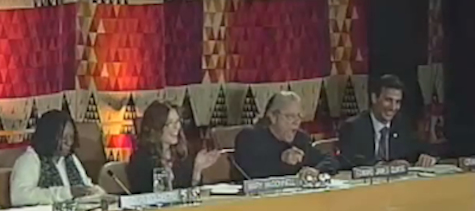An excerpt from Andrew Ross’s Bird on Fire talk, delivered at the CUNY Grad Center on October 28, 2011. Untitled from Social Text on Vimeo.
Category:
Occupying Gender in the Singular Plural
Tavia Nyong'oCall me a sissy, but I’ve never particularly cared for being referred to as cisgender. Still, the work of transgendered activists within Occupy Wall Street has been one of things that keep me optimistic. At a November 13th teach-in at Zuccotti Park, just days before the brutal eviction, trans activists took over the people’s mic for an hour-long lesson in occupying gender, educating their non-trans listeners on the unearned privileges we enjoy whenever we conform to ascribed gender; outlining the work that groups like the Sylvia Rivera Law Project have long been engaged in, against police violence and medical pathologization; and outlining pragmatic and principled tactics for an occupation open to trans and cis-gendered people alike.
Speculative Life: An Introduction
Jayna Brown and Alexis LothianIn our dystopian present, the term speculation is associated with an epistemology of greed, a sanctioned terrorism, and a new dimension of imperialism no longer based in production but in abstract futures. But speculation means something else for those who refuse to give its logic over to power and profit.
A Wilder Sort of Empiricism: Madness, Visions and Speculative Life
Jayna Brown“What will you do when the apocalypse comes??” he asked me urgently. My first reaction was to laugh derisively. But a friend made me think twice. “Who knows, maybe he’s right,” she said. Then came the Tsunami that devastated South Asia in 2004. And the levees that breached during Hurricane Katrina in 2005. Who’s to say what’s real?
Vampires and Cyborgs: Transhuman Ability and Ableism in the work of Octavia Butler and Janelle Monáe
moya baileyThe afrofuturist dystopic visions of Octavia Butler and Janelle Monáe tip on the tightrope of critical disability studies through the possibilities and limitations they reveal for post-human bodies. In Butler’s speculative fiction, disabled characters are gifted with transhuman abilities … Continue reading “Vampires and Cyborgs: Transhuman Ability and Ableism in the work of Octavia Butler and Janelle Monáe”
Speculating Queerer Worlds
Alexis LothianScience fictions never present the future, only “a significant distortion of the present,” as Delany wrote in 1984. But they also distort the present of anyone reading at any time, even the text’s own future. The contours of Dhalgren’s disintegrating city belong to the wake of 1960s countercultures and social movements, to a sexual and racial moment whose history uninformed new generations of readers will learn as they read, even if they fail to recognize it. Sexual pleasure in Delany’s work links the past and present and lets a different future feel possible, even when it takes place within structuring limitations.
Larissa Lai's "New Cultural Politics of Intimacy": Animal. Asian. Cyborg.
tamara hoChinese-Canadian author Larissa Lai imaginatively interrogates the boundaries of the human, alchemizes myths of origin, and embraces the impurity of the cyborg while foregrounding the politics of racialization, animality, and sexuality. Lai builds on the rich tradition of women … Continue reading “Larissa Lai's "New Cultural Politics of Intimacy": Animal. Asian. Cyborg.”
Socialist Irrealism: an interview with China Miéville
Jayna BrownChina Miéville is the recipient of multiple awards for his speculative/science/weird fiction novels, and the only author ever to win three Arthur C. Clarke Awards. His most recent novel, Embassytown, came out in May 2011 and has received enthusiastic reviews. As well … Continue reading “Socialist Irrealism: an interview with China Miéville”
Race for Life
alex weheliyeThe short film accompanying musician and designer M.I.A.’s (Maya Arulpragasam, who is British of Sri Lankan Tamil descent) song “Born Free” was released in April of 2010 and immediately banned from YouTube. Arulpragasam is no stranger to controversy, since … Continue reading “Race for Life”
So Say We All
Tavia Nyong'oRace is an illusion. So say we all! But what do we intend by this saying, this performative? Denise Ferreira da Silva is but the most recent of scholars to note that, in dispelling race from its improper place … Continue reading “So Say We All”
The Water Keeps Flowing
elizabeth turgeonWhen it comes to dealing with misfortune and injustice, the most effective tool to use if we want to make sure that troubles will persist without relief is a simple sentence: That’s water under the bridge. No use crying over … Continue reading “The Water Keeps Flowing”
Disappearing Natives: Notes for Future SF&F Stories
andrea hairstonThe Natives should have died off by now. To still be alive is a miracle. Can you taste two billion year old air on your breath or the remnants of primordial seas in your sweat? Do you feel e-coli breaking bread in your bowels? Does your heart synch up with these words, these poetic echoes of ancient ancestors? Self and other, simultaneously…
People Before Process: the Bureaucracies of Anarchy Pt. 2
Hannah Chadeayne AppelSometime in early October I showed up to an OWS organizer’s meeting at 16 Beaver Street. 16 Beaver, like 56 Walker or Charlotte’s Place, is one of these magically anachronistic spaces in lower Manhattan that feel like something out of Patti Smith’s Just Kids — free space for art, activism, and organizing, embedded in some of the most expensive real estate in the world. Of course, to label these spaces “anachronistic” is to cede to capital its totalizing power.
Failure
Ashley DawsonI think today must go down in history as the moment when humanity collectively failed to secure its own future. It also has to be seen as one of the greatest crimes of the rich and powerful of the world … Continue reading “Failure”
People's Alternatives
Ashley DawsonThis is the final session in a two-day workshop organized by the Transnational Institute, a group that bills itself as “a worldwide fellowship of scholar activists.” The overarching theme of the workshop was Defying Dystopia: Struggle Against Climate Change, … Continue reading “People's Alternatives”




